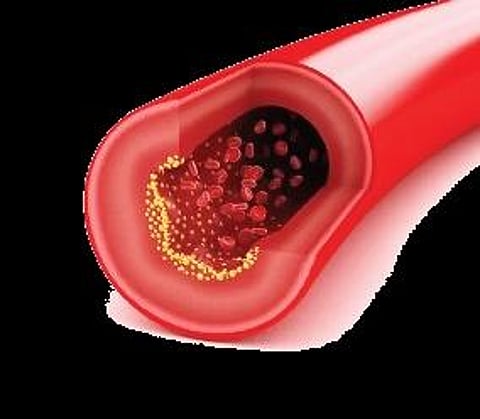

HYDERABAD: Dementia is the common disease among older adults, affecting memory and thinking ability by slowly decreasing the overall performance of the brain. On the other hand good cholesterol which is traditionally considered beneficial for health was challenged when a recent study led by Monash University researchers uncovered a potential downside to high levels of good cholesterol. Let us understand the recent studies conducted on the link between good cholesterol and dementia with insights provided by Dr Muralidhar Reddy, Senior Consultant Neurologist at CARE Hospitals.
High-density lipoprotein (HDL) cholesterol, also known as the “good” cholesterol because it helps in removing other forms of cholesterol from your bloodstream. But the extreme of anything could be harmful sometimes. Dr Muralidhar further explains, “Ideally, low-density lipoprotein (LDL) cholesterol, also known as bad cholesterol, should be less than 100 mg/dL. Doctors may not express concern about levels of 100–129 mg/dL for people with no health issues, but they may suggest treatment at this stage for people with heart disease.”
We are aware that good and bad cholesterol effect heart but a study found that having either high or low levels of high-density lipoprotein cholesterol, or “good” cholesterol, is tied to a small increased risk of dementia in older adults. Published in the journal Neurology, the study found that people with the highest levels of HDL cholesterol had a 15 per cent higher rate of dementia, and those with the lowest levels had a 7 per cent higher rate of dementia, compared to older adults in the middle range of cholesterol levels.
In addition, a new study published in The Lancet Regional Health—Western Pacific, as part of the ASPREE project led by Monash University, revealed that very elevated levels of high-density lipoprotein cholesterol (HDL-C), commonly known as ‘good cholesterol,’ are associated with an almost 30% increased risk of dementia, with individuals aged 75 and older facing a 42% heightened risk, according to the university’s press statement. This study involved over 18,668 participants on an average for six-years, and only those with very high HDL-C (80 mg/dL or above) had a 27% higher risk of dementia compared to those with optimal levels (40 to 60 mg/dL for men and 50 to 60 mg/dL for women), crucial for heart health.
The study’s findings not only shed light on the potential role of very high HDL cholesterol in dementia but also highlight the need for further research into its connection with brain health. First author and Monash University School of Public Health and Preventive Medicine senior research fellow Dr Monira Hussain emphasised the importance of considering very high HDL cholesterol levels in dementia risk prediction algorithms. While there are many causes for developing dementia, this study adds another risk factor.
Dr Muralidhar Reddy emphasised making healthy food choices can help in maintaining good cholesterol to a certain extent. Limit foods high in saturated fat, which comes from animal products (such as cheese, fatty meats, and dairy desserts) and tropical oils (such as palm oil). Foods that are higher in saturated fat may be high in cholesterol. Choose foods that are low in saturated fat, trans fat, sodium (salt), and added sugars. These foods include lean meats; seafood; fat-free or low-fat milk, cheese, and yogurt; whole grains; and fruits and vegetables.